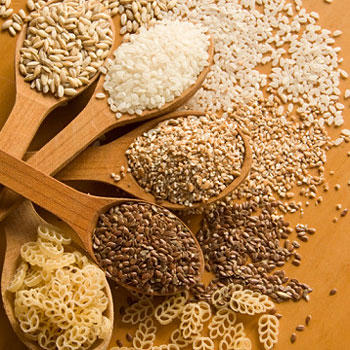Tips for Cooking a Healthy Meal

|

One of the best things you can do for your family is to cook healthy, nutritious and delicious meals. Science is proving what we have long suspected: the food you eat is largely responsible for how healthy you are. In addition, the eating habits you instill in your children are likely to be with them for the rest of their lives. Those are some very good reasons for serving your family the most nutritious meals that you can possible make. These tips will help you make sure that you are cooking and serving healthy meals to your family.
Serve whole grains like brown rice, bulgur wheat and kasha.
Rice is a staple in the diets of some of the healthiest populations in the world. Cooking rice can be tricky, but it's surprisingly easy if you invest in a rice cooker which maintains the proper heat to cook rice without turning it into a gluey, sticky mess. Use a little olive oil to keep grains from sticking together and salt and season lightly. A rice cooker can also be used to cook other whole grains like bulgur wheat for tabbouleh and kasha.
Include lots of fresh fruits and vegetables in your meals.
Fresh fruits and vegetables include fiber, vitamins and minerals that your body needs, along with extra water that helps you stay hydrated. Veggies and fruits are best served raw, but steaming and stewing are great ways to cook them as well, especially if you include the stewing juices as part of the meal. Keep produce fresh longer with Green Bags or Produce Keepers so that salads and fresh fruits are an appealing option for snacks.
Steam veggies and fish to preserve nutrients
Vegetables taste fresher and better when they are lightly steamed. You may even find that your children will eat up all their beans and peas without any butter or other heavy fats when they taste this good. Invest in a good set of steaming pans like a 4 piece Double Boiler and Steamer Pot or a 3 Tier steamer to cook meals all at once. Add spices to your cooking arsenal.
Spices add more to your meals than flavor. Many spices contain important nutrients and trace minerals that are not found anywhere else. Chili and pepper, for instance, contain small amounts of capsaicin, an anti-inflammatory agent that promotes healthy digestion. Use fresh herbs if you can. It is surprisingly easy to grow them in your own kitchen when you've got a good set of herb pots, and invest in a good spice rack like one that can measure spices for recipes.

Send healthy lunches along to school and work.
Don't let school lunches and take-out snacks sabotage your efforts at a healthy diet. Invest in a set of good portion control containers complete with ice packs so that you can send lunch along with them to school and work. You can even pack up fruit or veggie sticks with dip in containers designed to hold both and keep them separate until you're ready to dip them yourself.

|





